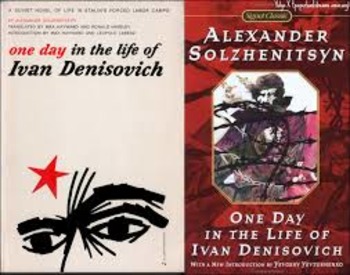

The book illustrates the necessity of possessing inner freedom/spiritual freedom in the face of evil and human depravity, and this is demonstrated most clearly in Shukov's conversation with Alyosha. Also notice the difference between Shukov and the narrator's voice. It is such an authentic and wonderfully written story: the characters all complement or contrast Shukov. After they have stripped all respectability away from the prisoners, Shukov can still be proud of his day's labor. The Soviets abused the prisoners: they saw the prisoners as worthless, but he manages to retain human dignity, despite their inability to give it to him they were unable to penetrate his psyche and make him feel worthy of death.Īlso, he retains his human dignity by his willingly working: he wants to do well not because they demand it, but because he demands it of himself. Shukov is pragmatic-he knows when to surrender and when to rebel against the absurdity and cruelty of the prison camp. This LitPlan Novel Study for One Day in the Life of Ivan Denisovich by Alexander Solzhenitsyn is a comprehensive foundation of ready-to-use materials that will ensure your students get the most out of their One Day in the Life of Ivan Denisovich novel study. Shukov's ability to adapt to the pressures of life and his willingness to survive demonstrate that he was ultimately victorious over the Totalitarian dehumanization. One Day had a profound impact on our world, for it demonstrated Communisms' ineffectualness and cruelty. The story is based on his own experience in a prison camp in Kazakhstan. Solzhenitsyn takes us through one excruciatingly long day in the life of Shukov, all detailed in one chapter.


 0 kommentar(er)
0 kommentar(er)
